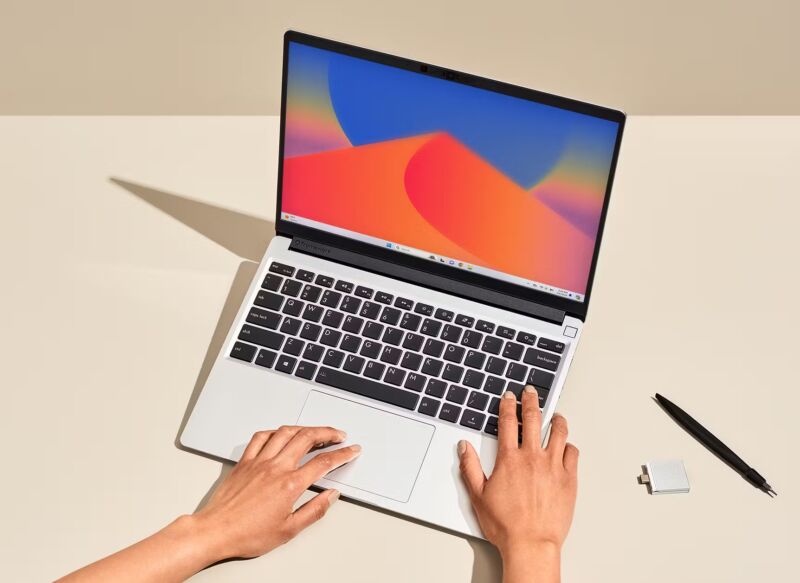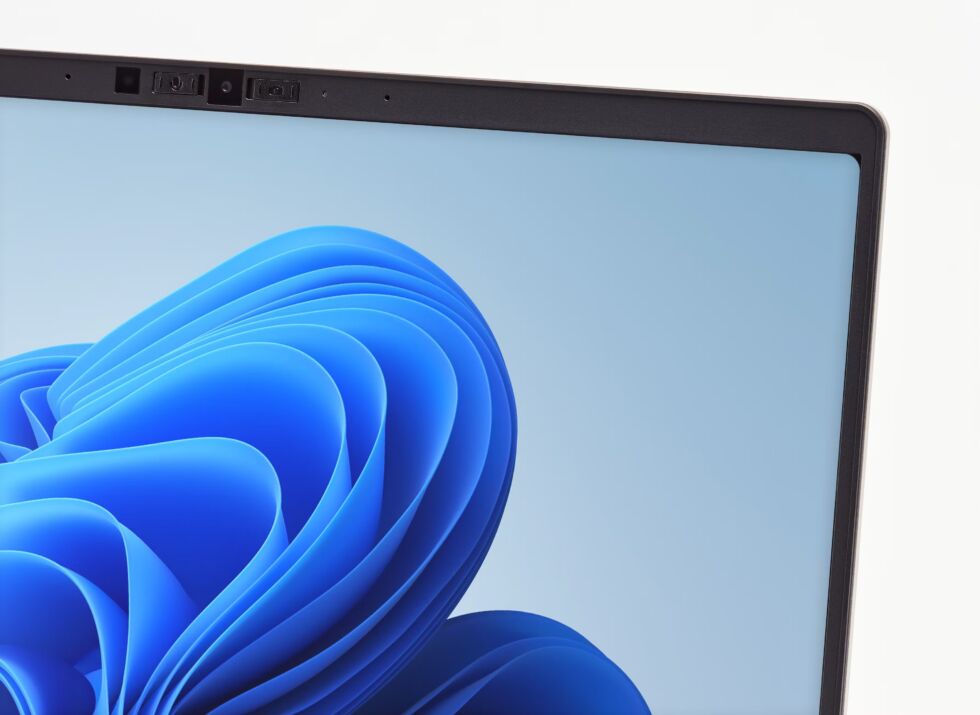sprucing up —
Framework Laptop 13 gets its fourth major round of upgraded, modular parts.

Enlarge / The Framework Laptop 13.
Framework
Framework will release a fourth round of iterative updates and upgrade options for its Framework Laptop 13, the company announced via a blog post yesterday. The upgrades include both motherboards and pre-built laptops that feature new Intel Meteor Lake Core Ultra processors with Intel Arc dedicated GPUs; lower prices for the AMD Ryzen 7000 and 13th-gen Intel editions of the laptop; and a new display with a slightly higher 2880×1920 resolution and a 120 Hz refresh rate.
The Core Ultra boards can come with one of three CPU options: an Ultra 5 125H with four P-cores, eight E-cores, and seven graphics cores; an Ultra 7 155H with six P-cores, eight E-cores, and eight graphics cores; or an Ultra 7 165H with the same number of cores but marginally higher clock speeds. Prices start at $899 for a pre-built or DIY model (before you add RAM, storage, an OS, or a USB-C charger), or $449 for a motherboard that can be used to upgrade an existing system.
All of the Core Ultra systems and boards ship in August as of this writing. Once this first batch sells out, a second batch will ship in Q3.
Those upgrading from an older Intel Framework board should take note: Like the Ryzen option, the Core Ultra CPUs also require an upgrade to DDR5 RAM since the processors don’t maintain compatibility with DDR4. Framework will charge you $40 for every 8GB of DDR5-5600 you buy, which is better than most PC OEMs but still above market rates—order your own RAM separately and you can save anywhere from $12 to $148, depending on the capacity.
The Core Ultra chips, like the Ryzen 7040-series chips, also include a neural processing unit (NPU) that can be used to accelerate some AI workloads. But both NPUs fall far short of the performance required for Recall and other locally accelerated AI features coming to Windows 11 24H2 later this year; Framework’s blog post doesn’t mention the NPU.
As for the new 13.5-inch, 2880×1920 display, it’s a decent resolution upgrade from the existing 2256×1504 display, and Framework says it will work a bit better with display scaling in Linux (Linux’s support for fractional scaling ratios like 125 percent or 150 percent is still generally labeled as “experimental,” though 200 percent display scaling usually works OK). It has a matte finish and a 120 Hz refresh rate, and it costs $130 more than the standard display or $269 when bought on its own to upgrade an existing laptop.

Enlarge / The new 13.5-inch Framework display has rounded corners, a side effect of the display panel being a repurposed version of something made for another (unspecified) company.
Framework
The one oddity of the new display is that it has rounded corners that don’t quite match the squared-off corners of the Framework Laptop’s display bezel. Framework says that’s because it “repurposed and customized a panel that was originally designed for another company,” though it hasn’t yet provided further specifics. All of Microsoft’s Surface devices released within the last few years have also used rounded corners, and I haven’t found that it affects functionality at all.
Other odds and ends include multicolor USB-C Expansion Cards that are color-matched to the colorful bezel options, an English International keyboard for Linux users with a “super” key in the place of the Windows logo, and a new 9.2-megapixel front-facing webcam module with low-noise microphones (Framework says this module doesn’t work at its native resolution but instead groups four pixels together into one to deliver better performance at 1080p).
Framework has also added new configuration options for the Ryzen 7040 version of the Laptop 13 that include the new display and has lowered prices on those AMD configs and on “our remaining inventory of 13th-gen Intel Core systems. AMD systems are about $50 cheaper than they were before, though the discount is only $30 if you’re buying a bare motherboard with the Ryzen 5 7640U installed.
If you’re interested in the Framework Laptop but are hesitating because of the software and firmware update issues we’ve reported on recently, Framework says it has made progress on some of the plans that CEO Nirav Patel outlined in an interview with Ars and in some statements since then. Both the Ryzen version of the Framework Laptop 13 and the Framework Laptop 16 got new drivers in early April, while BIOS updates for both Ryzen laptops, the 11th-gen Intel laptops, and the 12th-gen Intel laptops have all been formally released in the last few months. We’re monitoring these releases, and we’ll continue to cover them when there is new information to report.